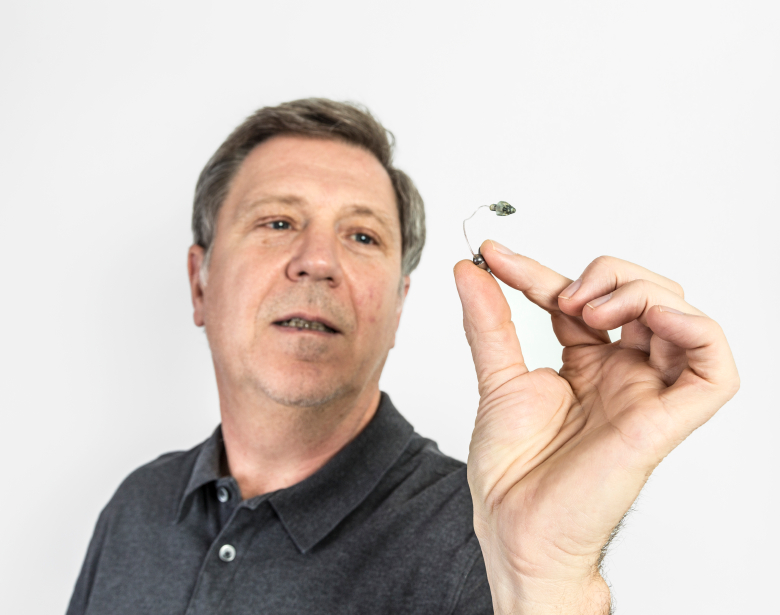Hearing loss, which affects nearly one in three adults between the ages of 65 and 74, and half of those over 75, can dramatically affect quality of life for many seniors. Trouble hearing can lead not only to frustration but may also contribute to social isolation when seniors avoid noisy settings where they have difficulty following conversations. Hearing loss can also be dangerous for drivers and pedestrians who cannot hear what is going on around them and may miss auditory cues in traffic. It is important to talk with your doctor about hearing loss and ask for a referral to a specialist.
Hearing loss can be age related or noise induced but may also be caused by infection, heart conditions, stroke, head injuries, tumors as well as some medications. In the case of sudden deafness, seek treatment immediately for the best chances of a cure. There are a number of devices that can be used to help improve hearing including hearing aids, assistive devices and cochlear implants.
Signs of hearing loss
- Trouble hearing over the telephone
- Finding it hard to follow conversations with two or more people
- Often asking people to repeat themselves
- Thinking people are mumbling
- Misunderstanding conversations
- Difficulty hearing women or children’s voices
- Others comment that the television or radio is very loud
While there is no cure for hearing loss, research at the University of Virginia School of Medicine is looking at treatment possibilities for hearing loss by studying the specialized inner ear cells of chickens. Chickens and many other animals are able to regrow sound detecting cells following a loss of hearing, for example a loud sound that damages the ability to hear at a particular pitch. Within 10 days, researchers found chickens, unlike humans, would be able to regenerate hair-like cells sensitive to sound and connect these to nerves, returning hearing to normal.
Lead researcher Benjamin R. Theide, found evidence that two molecules, Bmp7 and retinoid acid guide cells in the inner ear to grow hair bundles at different lengths to detect varying pitches. This discovery could lead to developing new treatments in humans to regenerate damaged cells and recover hearing.
To learn more about testing your hearing by phone visit https://www.nationalhearingtest.org/wordpress/ to determine if you need a complete hearing evaluation or visit the National Institute on Aging website for more information at: https://www.nia.nih.gov/health/publication/hearing-loss .






Add Your Voice
0 Comments
Join the Discussion